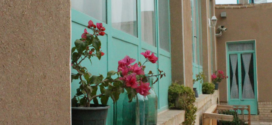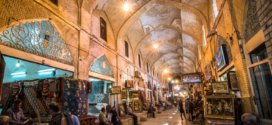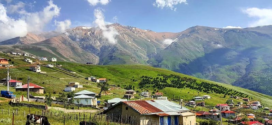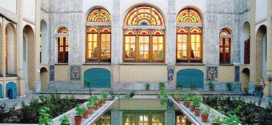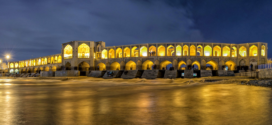We begin tonight’s edition of A Window to the Fatherland with Dr. Alireza Nourizadeh reading one of his poems from the book of his collected works.
Dr. Alireza Nourizadeh:
We continue the program with talking to our special guest, oil expert Mr Khosrow Semnani, who has also written the book “Where is My Oil?”.
Mr Semnani has also done a unique job by following the issue of the strike at Iran’s Haf Tapeh Sugar Refinery and reports its news to international labour organizations in defence of the Iranian workers.
Khosrow Semnani:
The story of Haft Tapeh is a symbol of the problems that Iranian workers and teachers are facing in the country. They are among the hardworking classes of Iran but as the country is engulfed in corruption of its rulers and top officials these lower class sections of the society are economically suffering most and are struggling for justice.
We sincerely hope to be able to help them and as such we employed a committee of lawyers and sent them to Geneva to meet with the representatives of the International Trade Union Confederation (ITUC) to raise the case of Iranianworkers with them.
We also spoke with a delegation of American Workers Unions and asked them to declare their support for the Haft Tapeh striking workers.
Dr. Alireza Nourizadeh:
You use the interesting term of “engineered corruption” in Iran. What do you mean by this description?
Khosrow Semnani:
This engineered corruption is the outcome of what Khomeini said back in 1979 when he declared that oil revenue is not important for the future of Iran and that he wanted his officials to disregard its role in Iran’s economy.
As such, 40 years later we now hear from Iran’s Oil Minister Bijan Zanganeh that the country’s oil industries are operating in “dark rooms”, which means it has lost its revenues and is bankrupted.
In my book “Where is My Oil” I have reflected on this issue by showing how Iran’s natural gas is sold at one fourteenth of its actual market price instead ofcreating real revenue for the nation.
And yet even whatever revenues that the government receives from this extremely low price ends up in the hands of the corrupt officials, their relatives and cronies.
The regime itself has announced that more than $24 billons from the Central Bank’s reserves have disappeared and another $22 billion have gone stray in Chinese banks, but at the same time when 3000 workers in Iran only need $4 million salaries they cannot pay it to them.
More than 51% of Iranians officially live under the poverty line and we hear oiltankers with $100 million worth of Iranian oil disappear on black markets.
 khalijefars News, Blogs, Art and Community
khalijefars News, Blogs, Art and Community
